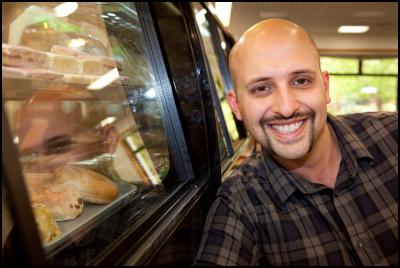Fresh food too expensive, says UC marketing expert
Fresh food too expensive, says UC marketing expert
July 4, 2013
A big reason why New Zealanders are spending $1.5 billion a year on takeaways is because fresh food is too expensive, a University of Canterbury (UC) marketing expert says.
A report this week showed the annual spend on takeaways has reached $1.5 billion, an increase of 25 per cent in just four years.
UC marketing researcher Associate Professor Ekant Veer says fresh food is too expensive and not just in monetary terms.
``It’s very difficult to feed a family of four for $10. But also the skills needed to turn raw produce into a healthy meal for a family of four is very much lacking in New Zealand.
``Similarly, the time needed to cook a meal and then clear up afterwards is expensive for many people. We no longer live in a society where there is a dedicated homemaker who cooks and cleans.
``Many families have multiple breadwinners and those breadwinners are tired at the end of the day or they don’t have the time to learn how to cook properly and healthfully. This all culminates in a culture of quick, easy solutions for dinners.
``Beyond this, taking a sandwich to work is also a dying trend with many people opting to eat out for lunch, at a cafe or vending machine.
``We’re relying on third parties to provide our ready food solutions because it costs to make our own food - it costs too much money, costs too much in time, and costs too much in skills.’’
Professor Veer says the takeaway industry is playing by the rules of a free market economy by supplying to where there is the greatest demand, which tends to be in locations that have high concentrations of lower socio-economic consumers, who often lack the financial and time resources to cook meals at home.
``This all culminates with low cost, calorie dense foods being widely available to people who are often unable to afford healthier food and do not have the time because they’re working long hours to create healthier food.
``Does this mean that the fast-food industry is preying on the most vulnerable in society? Yes, in my mind it does. Is there any legal obligation to stop this? At the moment none whatsoever. Supplying calorie-dense, nutrient-poor food is not a crime.
``However, it is leading to a massive increase in health problems among the lower socio-economic population. Many New Zealanders don’t know what an appropriate portion size is or what level of exercise is necessary to burn of a daily calorie intake,’’ Professor Veer says.

ENDS


 Nōku Te Ao: Bringing Together Voices On Mental Distress, Stigma And Discrimination Under One Roof
Nōku Te Ao: Bringing Together Voices On Mental Distress, Stigma And Discrimination Under One Roof Office of Early Childhood Education: Early Childhood Education Sector Confidence Survey Results 2025
Office of Early Childhood Education: Early Childhood Education Sector Confidence Survey Results 2025 Bikesport NZ: Intrepid Kiwi Teen Ready To Accept New Challenge
Bikesport NZ: Intrepid Kiwi Teen Ready To Accept New Challenge Wellington Access Radio: Young People Take Over Wellington Access Radio For Youth Broadcasting Week 2025
Wellington Access Radio: Young People Take Over Wellington Access Radio For Youth Broadcasting Week 2025 Dental for All: Community Groups, Oral Health Professionals Welcome The Green Party's Re-Commitment To Free Dental Care
Dental for All: Community Groups, Oral Health Professionals Welcome The Green Party's Re-Commitment To Free Dental Care Wikimedia Aotearoa New Zealand: Christchurch Hosting A Weekend For Wikipedians
Wikimedia Aotearoa New Zealand: Christchurch Hosting A Weekend For Wikipedians